What is Ciprofloxacin Used For And Where to Buy Cipro
Cipro is approved by Food and Drug Administration to treat certain conditions and infections caused by bacteria. In this blog, we are going to throw light on the uses of ciprofloxacin and other information you must know about this drug.
What is Cipro?
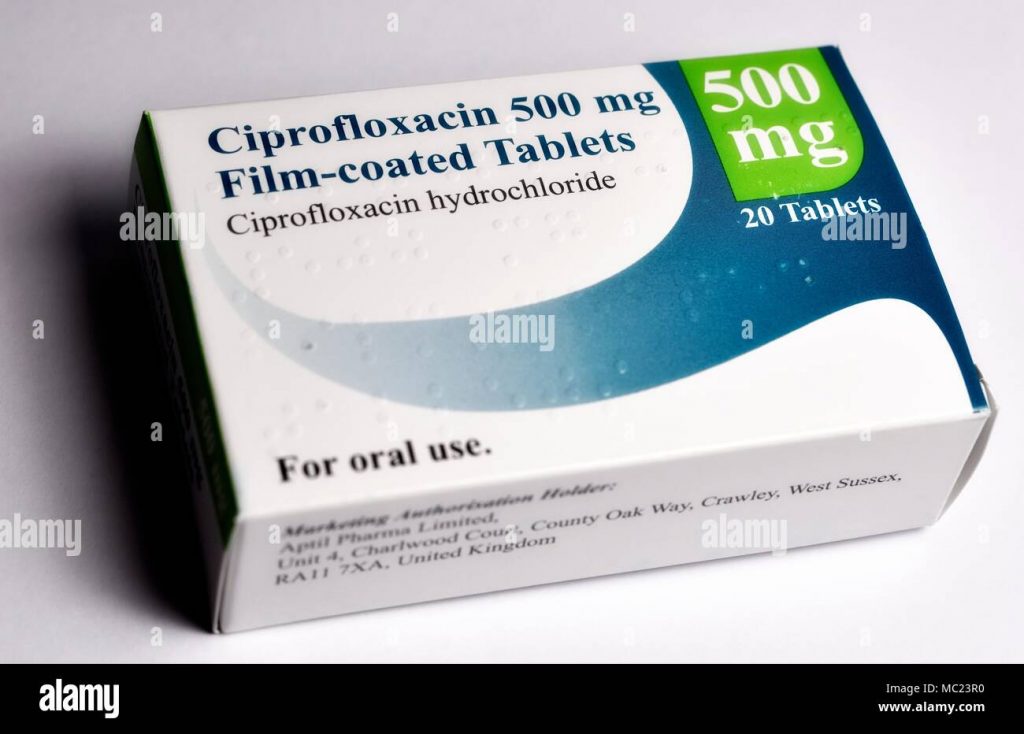
Cipro is the generic name of the Ciprofloxacin brand name for this medication. Cipro is used to treat infections caused by certain types of bacteria including infections in the abdomen, bone, urinary tract, prostate, skin, and many other infections.
Is Cipro an antibiotic? Yes. Cipro or Ciprofloxacin or Ciprofloxacin hydrochloride is an antibiotic medication and belongs to the class of drugs called fluoroquinolones.
Cipro generic name drug is approved to treat all conditions that the brand name version of this drug can treat. Ciprofloxacin generic cost is less than the Cipro brand name drug.
Ciprofloxacin does not work against viral infections such as colds or flu.
Cipro is available in various forms:
- Oral immediate-release Ciprofloxacin tablet
- Oral extended-release Ciprofloxacin tablet
- Ciprofloxacin ophthalmic solution or Cipro eye drops
- Ciprofloxacin otic solution or Ciprofloxacin ear drops
- Ciprofloxacin oral suspension
- Ciprofloxacin solution for injection
Ciprofloxacin Medication Forms And Strengths
- Cipro tablets: Cipro 250 mg, Cipro 500mg, and Cipro 700 mg
- Cipro XR extended-release tablets: Cipro XR 500 mg and Cipro XR 1000 mg
- Cipri powder for oral suspension: Cipro 250 mg/5ml and Cipro 500 mg/5ml
What Is Cipro Used For?
What is Cipro for? Generally, Cipro is used to treat bacterial infections and also acute bacterial exacerbations of certain illnesses in both adult and pediatric patients. Other than certain FDA-approved Cipro uses, it may be used off-label in order to treat some other conditions.
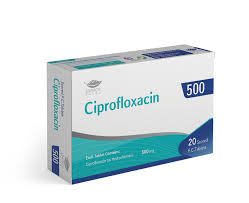
FDA-approved Cipro uses:
- Abdominal infections
- Diverticulitis
- Gastroenteritis
- Gallbladder infections
- Food poisoning
- Bone and joint infections
- Bronchitis
- Pneumonia
- Sexually transmitted disease
- Sinus infection
- Skin infections
- Ear infections
- Urinary tract infections
- Kidney infections
- Prostate infections
Ciprofloxacin can be also used against plague, anthrax, and typhoid fever.
Ciprofloxacin for UTI (Urinary Tract Infections)
Just like many other antibiotic medications, Ciprofloxacin is used to treat UTIs. FDA has approved Ciprofloxacin for the treatment of both complicated and uncomplicated urinary tract infections.
A urinary tract infection occurs when bacteria enter the urethra, infecting urinary tract areas. UTIs can be caused by susceptible organisms such as Pseudomonas aeruginosa and Proteus mirabilis and Ciprofloxacin is effective against such organisms.
Ciprofloxacin Extended Release Tablets for UTIs
Ciprofloxacin extended release tablets can only be prescribed to treat UTIs including acute uncomplicated pyelonephritis.
Cipro For Lower Respiratory Tract Infections
The lower respiratory tract gets inflamed when harmful bacteria infect your lungs and your body starts producing more mucus. The mucus build-up lead to productive cough, the key symptom of lung congestion. Ciprofloxacin medicine can improve the symptoms by killing these infectious bacteria.
Cipro For Diarrhea
Ciprofloxacin is used to treat diarrhea caused due to bacterial infections. Infectious diarrhea can be caused by Escherichia coli bacteria. Cipro can work against these bacteria by treating diarrhea.
Cipro For Ear Infection
Ciprofloxacin is used to treat ear infections caused by bacteria including ear canal infections. Cipro otic drops are prescribed to treat external ear infections in children and adults and acute middle ear infections in children with ear tubes.
Ciprofloxacin or Cipro otic drops work against ear infections by averting the growth of infection-causing bacteria. Usually, people feel better within the first few days of using Cipro medication.
How Does Ciprofloxacin Work?
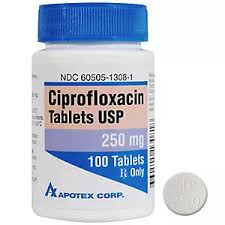
Cipro belongs to the fluoroquinolones class of medicines. These antibiotics are bactericidal. It means these types of antibiotic medications directly kill bacteria. Ciprofloxacin blocks the enzymes required for the survival of bacteria and thus kills the bacteria. Ciprofloxacin coverage includes a broad spectrum. It works against several types of bacteria.
How long Ciprofloxacin takes to work? Ciprofloxacin antibiotic treatment usually begins to work against bacterial infections within hours after you take it. However, some patients may not be able to notice improvements in symptoms for a few days.
Before Taking Ciprofloxacin for Bacterial Infections
Tell your doctor about your medical history. Talk to your doctor or pharmacist if you have or had diabetes, joint/tendon rupture, kidney disease, nervous system disorders, heart problems (slow heartbeat or heart failure) myasthenia gravis (Cipro may worsen muscle weakness), or liver disease.
Tell your doctor if you are allergic to Ciprofloxacin or other antibiotics.
Tell your doctor about other medications, all the drugs including prescription and nonprescription drugs or any kind of supplements you are taking. Particularly let your doctor know if you have blood sugar-related issues as this medication may have blood sugar lowering effects in some patients.
How to take Cipro medication?
Make sure you follow the instruction provided by your doctor or pharmacist regarding Ciprofloxacin. Read your prescription label carefully and stick to the instructions. If you have any questions regarding how to use Ciprofloxacin, talk to your doctor.
Ciprofloxacin comes in different forms and dosages so it’s extremely important to stick to the specific instructions mentioned on your prescription.
Typically, Cipro tablets are prescribed to take twice a day, and extended-release tablets once a day. Cipro extended-release tablets are only prescribed for adults. The duration of treatment depends on the type and extent of bacterial infection.
Cipro With Food
You can take Ciprofloxacin with or without food as per your choice. However, if you take it make sure you drink flinty of water and fluids while taking Cipro medication.
Avoid eating calcium rich foods and calcium-fortified drinks. Take Cipro tablets at least 2 hours before or after having calcium-containing products. The bioavailability of Cipro medicine after oral use can be influenced by the use of dairy products, antacids, and sucralfate.
Calcium rich foods decrease the effect of Ciprofloxacin. Try eating these foods as a part of a larger meal that contains non calcium foods. other foods decrease the calcium binding effect.
Ciprofloxacin Precautions
Do not crush or chew Cipro tablets, particularly Ciprofloxacin extended-release tablets. You can split Cipro tablets in half if required. However, you should not split Cipro XR extended tablets, these should be swallowed as it is.
If you are using Ciprofloxacin suspension, shake it well before each use. If you can not swallow tablets, you can always ask your doctor about other ways to take your Ciprofloxacin medication.
You may feel better and free of infection before you complete your Cipro treatment. Even if you feel better, do not stop taking Ciprofloxacin tablets. Make sure you complete the course of treatment prescribed by your doctor to avoid the recurrence of the infection.
Do not change the brand of the prescribed Ciprofloxacin oral suspension or tablets without consulting your doctor. Not all brands possess similar effects.
Ciprofloxacin or Cipro Dosage

The exact Cipro dosage depends on several factors including age, type, and severity of the infection that needs to be treated, the form of Cipro medication, and other medical conditions of the patient.
Usually, your doctor starts with a low dosage and over time adjusts the dosage depending on the response to treatment. make sure you follow the correct dose as prescribed by your healthcare professional.
Ciprofloxacin 500mg antibiotics for humans are most commonly prescribed by doctors and healthcare providers in order to treat certain bacterial infections.
Bone and Joint Infections
For bone and joint infections, Ciprofloxacin 500mg antibiotics or 750 mg is prescribed to take every 12 hours for 4 to 8 weeks depending on the severity of the infection.
Infectious Diarrhea
For the treatment of infectious diarrhea in adults, Ciprofloxacin 500mg tablets should be taken every 12 hours for 5 to days.
Lower Respiratory Tract Infections
To treat lower respiratory tract infections, Ciprofloxacin 500mg tablets should be taken every 12 hours for 7 to 14 days.
Urinary tract Infections
Ciprofloxacin 500mg antibiotics for UTI should be taken for 3 days for mild infections. To treat urinary tract infections (severe), Ciprofloxacin 250mg tablets or 500 mg tablets are prescribed to take every 12 hours for 7 to 14 days depending on the extent of the infection. Cipro XR extended-release tablets are only prescribed for treating UTIs.
Sinus Infections
For sinus infections, the typical dosage is Ciprofloxacin 500mg antibiotics that should be taken every 12 hours for 10 days.
Abdominal Infections
The typical dosage to treat abdominal infections is Ciprofloxacino 500 mg and it should be taken every 12 hours for 7 to 14 days.
For Pediatric Patients
Children’s dosage differs from adults and it depends on the age and weight of the child. The typical Cipro dosage for 1 to 17 years old children is 10 to 20 mg/kg and should be taken every 12 hours for 1 to 3 weeks. For children, the Ciprofloxacin dosage should not be over 750 mg every 12 hours.
Missed Dose
If you missed a dose, take it as soon as possible. In case you realize the missed dose 6 hours or less before your next dose, skip the missed dose and continue with your regular dosing schedule. Do not take two doses together in order to catch up on the missed dose. It may lead to drug overdose causing serious side effects.
Cipro Overdose
If you have taken too much of this medicine, in case of overdose call your doctor immediately or seek medical attention from the provincial poison control center. You can report serious side effects of Cipro overdose to Health Canada.
In case of severe symptoms of drug overdose contact for emergy medical help. Severe side effects of overdose include allergic reaction, severe skin reaction, muscle weakness or pain, low blood sugar, severe diarrhea, and irregular heartbeat.
Where To Buy Ciprofloxacin?
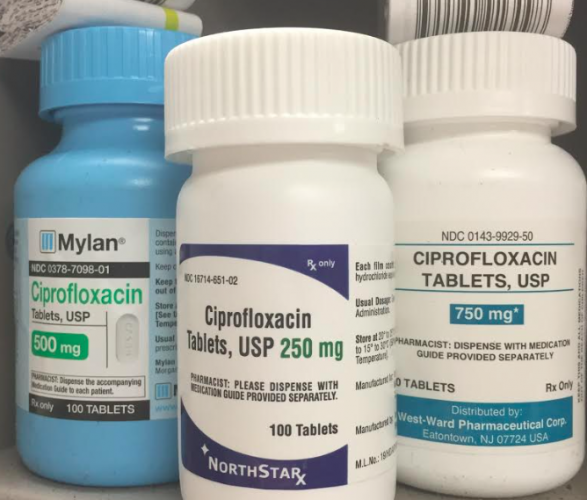
Cipro is a prescription-only medication so it is not available over the counter. You need a Ciprofloxacin prescription from a licensed doctor in order to buy this medication. If you do not have a prescription and you are not able to visit your doctor more often you can buy Cipro online.
You can get Cipro medication prescribed by a doctor without visiting. Online pharmacies offering Ciprofloxacin connect you with their doctors for online consultation. Their doctors ask you some questions, and once they find it suitable for you they issue a prescription to the pharmacy and you can get doorstep delivery of Cipro medication.
Ciprofloxacin Interactions or Cipro Drug Interactions
Cipro drug interactions may occur with certain medications (prescription or over-the-counter drugs), blood thinners, vitamins, foods, ingredients, herbs, and supplements.
- Antacids
- Anticoagulant drugs (warfarin)
- Amiodarone (Pacerone)
- Antipsychotic Medications (Ziprasidone, Haloperidol)
- Macrodile antibiotics (Erythromycin and Azithromycin)
- Tricyclic antidepressants (Imipramine, Desipramine, Amitriptyline)
- Clozapine
- Diabetes medications(Glyburide and Glimepiride)
- Methotrexate
- Probenecid
- Ropinirole
- Sildenafil
- Metronidazole
- Calcium containing products
Cipro may slow down the elimination of other medications from your body that may influence how they work. These affected drugs include Duloxetine and Tizanidine.
To avoid these possible drug interactions make sure you tell your doctor about the medications or any supplements you are taking. Also do not change or skip your dosage. Tell your doctor or health care provider if you are planning to take any other drugs while taking Ciprofloxacin.
Cipro Shelf Life
Cipro is among those medications that may become toxic if it sits in your cabinet for too long. When stored in a cool and dry place, ciprofloxacin can retain its 90% potency by the expiration date on its label.
It is recommended not to take antibiotics or other pills kept for too long in your cabinet without consulting a healthcare professional. Dosing yourself with Cipro medications that become toxic over time can cause dangerous Cipro allergy or Cipro reactions.
Moreover, keep your medications away from children and pets. Do not flush medications in the toilet or pour them in the drain unless you are asked to do so. If you have medicines that are expired or not required consult a local waste disposal company or pharmacist about their disposal.
Is Cipro A Sulfa Based Drug?
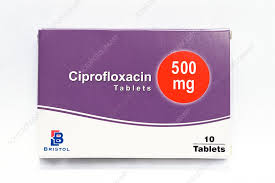
Certain antibiotics contain sulfonamides that can initiate an allergic reaction in people with sulfa allergy. Erythromycin-sulfisoxazole and Sulfamethoxazole-trimethoprim (Bactrim and Septra) are among sulfa-based drugs.
Is Cipro a sulfa drug? No. Ciprofloxacin is a fluoroquinolone nowhere related to sulfonamides. Does Cipro contain sulfa? No, Cipro does not contain sulfa and is not considered among sulfa antibiotics.
In fact, if you are allergic to sulfa, your doctor or pharmacist may prescribe you Ciprofloxacin medication as an alternative to sulfa-based antibiotics.
Cipro And Alcohol
Can you drink while taking Cipro? There are no warnings mentioned about the interaction of Cipro with alcohol so you can drink alcohol while taking Ciprofloxacin. It is considered safe to drink alcohol during Ciprofloxacin treatment.
Although Cipro is not known to interact with alcohol, still you should avoid drinking while taking any prescription drug. Always keep in mind that drinking alcohol with any prescription medication may increase the chances of side effects such as nausea and vomiting.
If you are drinking alcohol while taking Ciprofloxacin make sure you stay hydrated and consume alcohol in a moderate amount in order to attain better recovery from infection.
Cipro And Pregnancy
This drug may affect the fetus in pregnant women. Talk to your doctor if you are pregnant, trying to conceive, or breastfeeding to discuss the potential risk. Do not breastfeed your child while taking Ciprofloxacin as this drug can pass into the breast milk and impact the child.
Can Cipro Cause Headaches?
Some antibiotics including Ciprofloxacin may cause headaches. It is not experienced by most people who use Ciprofloxacin medication. However, some people reported headaches. In most cases, you do not need to treat this kind of headache as it goes away itself. In case you experience a severe headache that does not go away while taking Cipro tablets ask your doctor for medical advice.
Cipro And Joint Pain
Joint pain is among the most common and usual Cipro side effects. Joint pain while taking Ciprofloxacin occurs in less than 1 in 100 patients. Most people reported mild joint pain, not severe pain. Having joint pain while taking Cipro treatment does not need you to have a history of joint conditions.
Fortunately, the pain disappears within a week after you stop taking Cipro medication. In case you experience severe joint pain or your pain does not go away after you stop the treatment talk to your doctor or health care professional.
Ciprofloxacin 500mg Antibiotics Side Effects
Common Ciprofloxacin side effects include nausea, diarrhea, vomiting, dizziness, stomach pain, and a rash. Mostly these Cipro side effects go away within a few days. Mild Cipro side effects including nausea and diarrhea get better soon after you stop taking Cipro.
Cipro side effects tendon swelling or tearing is very rare. Very serious side effects which are rarely reported by patients include liver damage, severe allergic reactions, rapid heartbeat, severe intestinal condition, tremors or seizures, peripheral neuropathy, severe sunburn, extremely low blood sugar, changes in blood sugar levels, and aortic aneurysm in elderly people.
Using Ciprofloxacin for prolonged or repeated periods may cause oral thrush or a fresh yeast infection. Although it rarely happens, let your doctor or pharmacist know if you notice white patches in your mouth or new symptoms.
Cipro Class Action Lawsuit
Thousands of Cipro class action lawsuits were filed against manufacturers of fluoroquinolone antibiotics including Avelox, Cipro, and Levaquin. The lawsuits were filed about the side effects of these medications however the claims were inadequate.
As per fluoroquinolone antibiotic Cipro reviews written by users of this medication, most people reported infection cleared without any kind of Cipro allergy or Ciprofloxacin side effects. Most people who used Ciprofloxacin voted for this medicine with positive reviews.
Additionally, FDA has stated that the potential risks and Cipro adverse reactions outweigh the benefits of the medication. They have strengthened their warning label to warn people against the possible Ciprofloxacin side effects and dangers.








